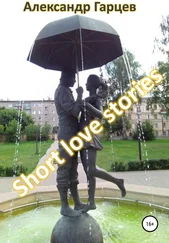Her city was in turmoil. We could watch yesterday’s street fighting on the evening news. “No matter the time here, I always feel the exact hour at home, like having a clock inside me, and I’m living here and there in both times at once. It has nothing to do with homesickness,” she told me, trying to explain. “There’s a line in a poem by a Lebanese poet, a woman who actually inscribed a book to my mother. In English, it’s something like, I have hidden under my tongue a land, I keep there like a host. ”
Nisa’s love of poetry came from her mother, a teacher at a private girls’ school in Beirut. Her mother believed that an educated woman was a free woman. That’s how she’d raised Nisa, and yet the night before Nisa left for the U.S., her mother warned her to guard her heart. She told Nisa that travel exaggerated emotions, and that foreign travel could both broaden and distort perspective—it could make highs ecstatic, and the depths hopeless. She cautioned Nisa about callow American boys.
“At least she didn’t call them decadent,” Nisa said.
“Personally, I prefer decadent,” I said.
“Then you shall have it. You’re my first decadent American boy.”
Despite my callow joke about her name, she liked hearing in return that she was my first Phoenician girl.
She had to return to Beirut before the winter semester ended. The day she left, I called a cab and rode with her to O’Hare. We’d never before taken a cab together. On excursions downtown we always rode the Red Line L over the city. Nisa loved the L. Once, during a March blizzard, she made up a fantasy about us boarding an L train with a violet headlight at a snowy, abandoned station and riding the sparking third rail of the Violet Line over roofs and across the dark lake, where we fell asleep to the rhythmic hiss of wheels on water. When we wake it’s light and the train stands among date palms at a sun-drenched station in a white city. The doors snap open and she takes my hand. “ Let us go then, you and I ,” she says.
The cab smelled of curry. The Pakistani driver was forking his breakfast from a to-go carton as he drove. Nisa and I tried to keep things light, but only managed to seem self-conscious. She became so quiet that I asked if she was all right.
“I’m not afraid of flying,” she said, “but airports make me nervous. They remind me of hospitals.”
“How’s that?” I asked.
“In hospitals people are giving birth while others are dying; it’s hello or goodbye, like an airport.”
When we checked Departures for her gate, I kidded about not seeing any flights to Phoenicia. “Maybe it can only be reached by galley. I’m afraid you’ll have to stay,” I said.
Her eyes suddenly teared. “I’m sorry,” she said, “I promised myself I wouldn’t do this, but I am going to miss you so much. If this is the exaggerated emotion mothers warn daughters about, I’m not leaving it behind.”
I put her suitcase down and held her, breathing in the scent of her hair. “You know it’s the same for me, right?” I whispered against her ear. “You know where this is going, right? I want to be where your bare foot walks.”
“You will,” she said.
We promised again to call and write. She didn’t have a return ticket, but would be back in maybe four weeks, she said, maybe even in time to take her final exams. Her grandfather had belonged to the Phalange and when the Syrians shelled the Christian neighborhoods, he had refused to move. His insistence that the family remain in Beirut was one reason Nisa had been sent out of the country to school. Now that he was dead, she knew the family would be relocating, perhaps to the Christian stronghold of Rayfoun, or to Brummana, the town of her mother, in the mountains. I’d never been farther from Chicago than New Orleans, and beyond clips on the TV news, I understood little about the conflict and the country to which she was returning, knew next to nothing of its history, language, and culture, nothing of the whitewashed, bullet-riddled, glass-strewn, window-blown, smoldering city she called home.
At the international gate, while travelers hurried by, we stood kissing.
“No cheers?” Nisa asked. “What’s wrong with these people? Are they sleepwalkers? Don’t they recognize the girl from Phoenicia, who came all this way in a Chicago winter, to have that once-in-a-lifetime kiss, a kiss that would be legendary? If I look back to wave, I’ll cry,” she said, and then she turned and walked away without looking back. I watched until her black hair disappeared into the crowd.
I took public transportation back. I carried no luggage, but the L ride felt like traveling to a foreign province—the City Where I Missed Her—a place I’d never been before, complete with exaggerated emotion and a distorted perspective.
After a week of silence, I called the numbers she had given me, but the calls never went through. The letters I wrote, nearly every day at first, like pages in a diary, went unanswered. Each day I’d read the paper for news about Beirut. There were so many questions I wished I had asked her. I’d wait for the mail. Everything that summer seemed like waiting. I went to sleep waiting, woke waiting, read waiting, looked for a job waiting, walked beside the lake, as Nisa and I had back in March before walking had become another way of waiting.
The priest swam each morning that summer, far out beyond the whistles of lifeguards. Reflecting light like white marble, his arms milled a steady stroke south toward the hazy skyline of downtown. I assumed he launched his swim from the tiny pebble beach near Madonna della Strada. I don’t know how far he swam; I never saw him returning. I wondered if swimming for him was a form of prayer, a daily routine akin to that of the priests murmuring their breviaries as they strolled through the lakeside campus at dusk.
He continued to swim after Labor Day, when the lifeguards left and the beaches officially closed. He swam through early autumn as the temperature fell and leaves rusted and rattled and the windy days stropped the waves to a metallic glint. Fall mornings when the surface of the lake steamed, I’d spot him, always at the same distance from shore, like a man training to swim the Channel. There were overcast days when the sudsy gray chop made him hard to see. I’d test with my hand and imagine immersing my body into water that glacial. I began to wonder if, rather than a prayer, swimming was penance, some form of mortification, like a monk lashing himself in his cell or Raskolnikov embracing suffering at the end of Crime and Punishment . What was he swimming from? I tried to imagine his demons, without accusing him of a specific crime—molester, murderer, skimmer of donations on church-sponsored bingo nights. I supposed if there was a sin that had become his secret, then it must have been some betrayal of his office or vocation, a breach of trust that redefined him. By late October there were morning frosts and days you could see your breath, when it was too blustery to walk for long beside the lake. I don’t know on what day he either found forgiveness or simply admitted that it was impossible for him to enter the water.
* * *
Swimming would never be my prayer, but now, years later, breast-stroking away from Columbia Beach at night, I hoped that, like a kind of meditation, the swim would still my mind.
Instead, my thoughts worked back to my caseload. It was over one hundred cases and I was constantly behind. Ragged unread case files buried my desktop. I thought about the people I’d seen earlier that day, like Serena Dixon, an obese woman who would insist on brewing a pot of coffee so we could “visit like civilized folk.” In conversation, she seemed a caring mother, but her four-year-old daughter, Deedee, had just had her third major “accident”—a fall down the stairs that broke her arm—and I’d begun keeping a record of other signs of abuse.
Читать дальше












